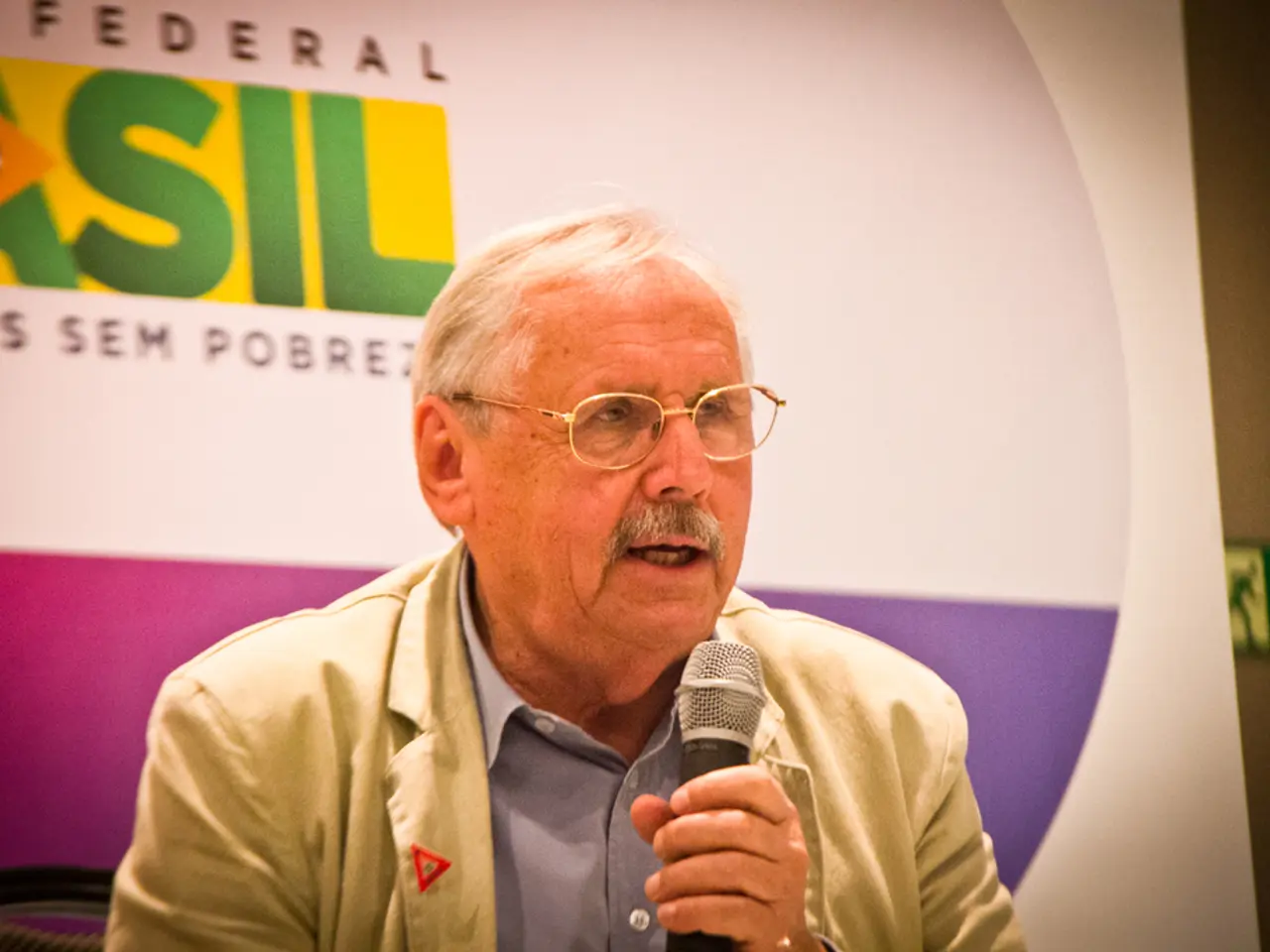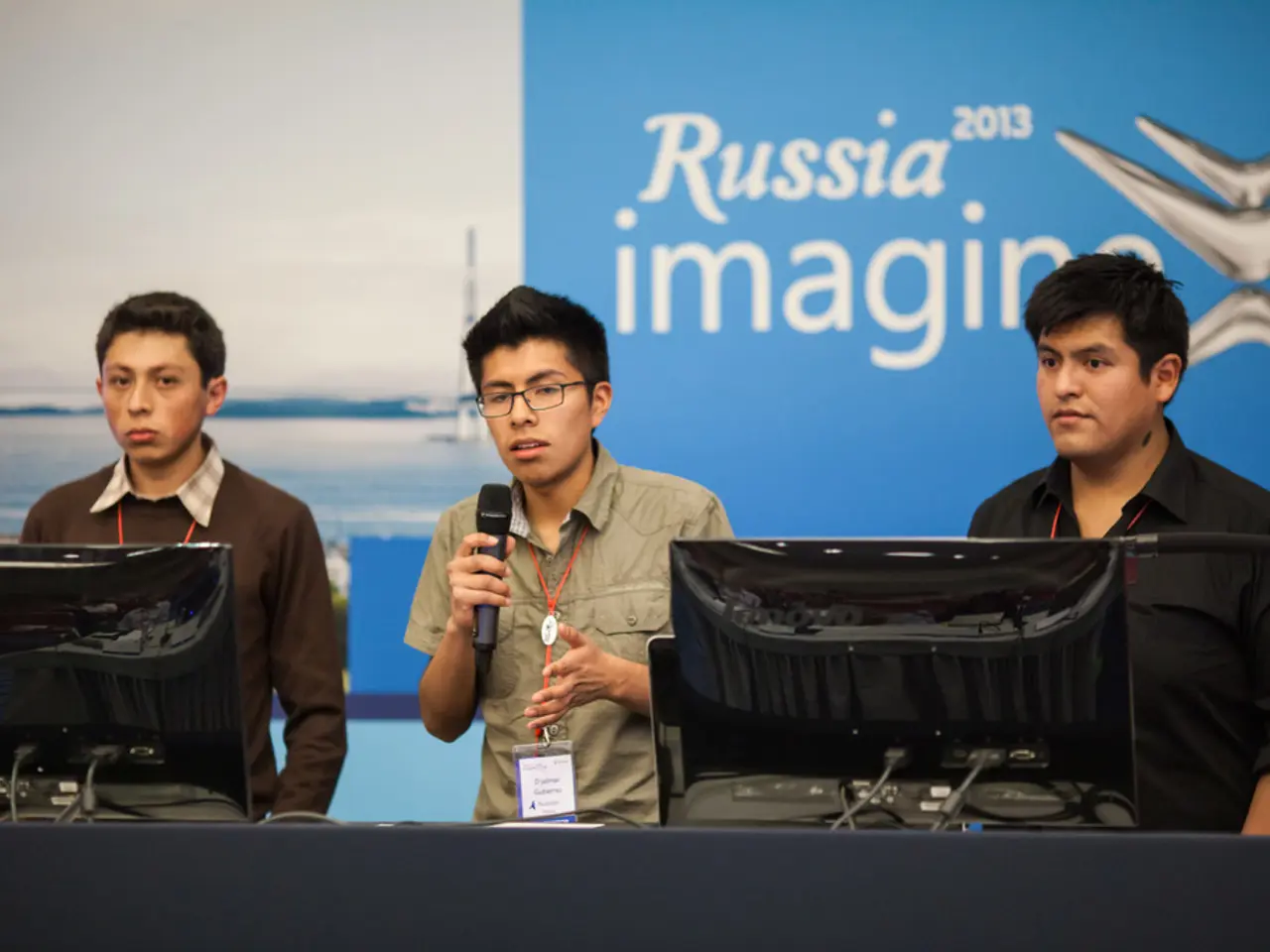The Commission has yet to receive a response from their counterpart Commission.
================================================================
In recent discussions, the idea of Canada developing a nuclear deterrent force has been brought to the forefront. This proposition, however, remains a contentious issue, with the majority of focus centred on disarmament and diplomatic efforts rather than nuclear armament.
Pros of a Canadian Nuclear Deterrent
Advocates of a nuclear deterrent argue that such a move could enhance Canada's national security and strategic autonomy, reducing reliance on the United States and NATO nuclear umbrellas. It could also provide greater geopolitical leverage and a stronger defence posture amid shifting global threat landscapes, including Arctic security challenges. Furthermore, a nuclear arsenal could potentially deter major adversaries in a time of evolving military threats.
Cons and Challenges
Opponents of the idea argue that the financial costs and logistical challenges to develop, maintain, and secure a nuclear arsenal would be astronomical. Additionally, pursuing a nuclear deterrent could damage Canada’s international reputation and credibility as a middle power committed to nuclear nonproliferation. There is also the risk of escalating regional or global arms races and undermining existing disarmament treaties.
Domestic political opposition and civil society resistance due to moral and ethical objections are other significant challenges. Canada's historical voting patterns and commitments show consistent opposition to nuclear weapons proliferation and support for negotiations towards global abolition.
Current Debates and Positions
Canada remains a strong supporter of nuclear disarmament initiatives and has historically voted against nuclear weapon bans only in alignment with NATO’s strategic policies rather than adopting its own nuclear arsenal. Civil society groups such as the Canadian Pugwash Group actively campaign for Canada to reduce reliance on nuclear deterrence and promote global abolition.
There is growing attention to Canada’s defense spending and strategic commitments within NATO, emphasizing conventional forces modernisation and cooperation rather than nuclear armament. Discussions about Canada’s evolving role in defence focus more on technology, Arctic security, and meeting NATO spending targets than on nuclear weapons acquisition.
Implications for International Relations
Pursuing a nuclear deterrent could alienate key allies and damage Canada’s leadership role in disarmament forums. Conversely, increased defence spending and strategic partnerships—short of nuclear armament—are viewed as ways to strengthen Canada’s security and alliance credibility. Canada’s position influences broader nonproliferation efforts globally, as it is seen as a model middle power balancing security and diplomacy.
NATO’s nuclear policies and U.S.-Canada defence ties remain crucial; Canada’s move towards nuclear weapons would be a significant departure likely impacting alliance dynamics.
Expert Opinions
Aisha Ahmad, associate professor of political science at the University of Toronto, argues that nuclear weapons can deter an attack, invasion, or attempt at annexation by a hostile superpower in the current geopolitical context. Stéphane Roussel, a professor of political science at the École nationale d'administration publique, suggests that instead of embarking on the nuclear adventure, Canada should focus on reducing its dependence on the United States in military matters.
Roussel argues that being able to act independently without relying on the United States is a significant program in itself. If Canada were to pursue such a program, it would essentially have to start from scratch and do it without the help of its closest allies, since the United States would likely oppose such an enterprise.
In summary, while the notion of Canada adopting a nuclear deterrent force arises periodically, current policy, public opinion, and expert consensus emphasise disarmament and strengthening conventional defence capabilities within alliances rather than nuclear proliferation. The country faces strategic choices linked to defence spending and role adaptation but remains committed to nuclear nonproliferation and global disarmament efforts.
- The debate surrounding Canada's potential nuclear deterrent further highlights the nation's political focus on disarmament, policy, and legislation related to war-and-conflicts, as advocates and opponents discuss the implications for Canada's national security, geopolitical position, and international reputation.
- In the context of Canada's general news, the discussion about nuclear deterrents is not just about the military aspect, but also involves the politics of alliances, diplomatic efforts, and public opinion, with Canada maintaining its commitment to nuclear nonproliferation and global disarmament initiatives.





